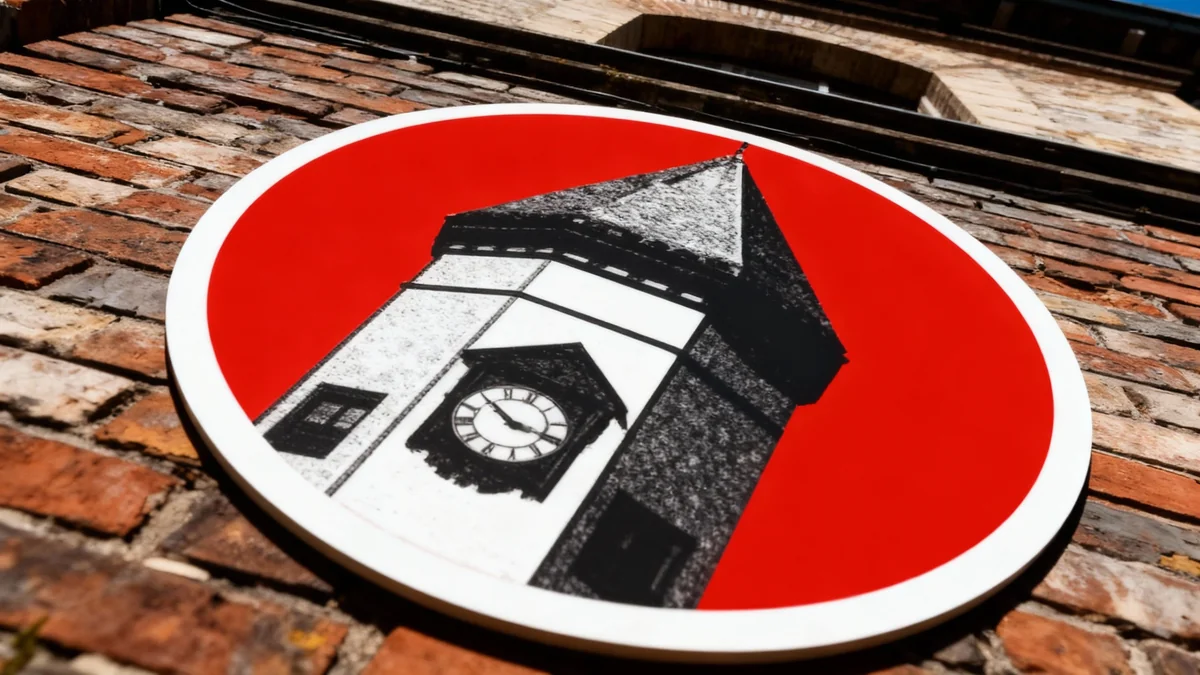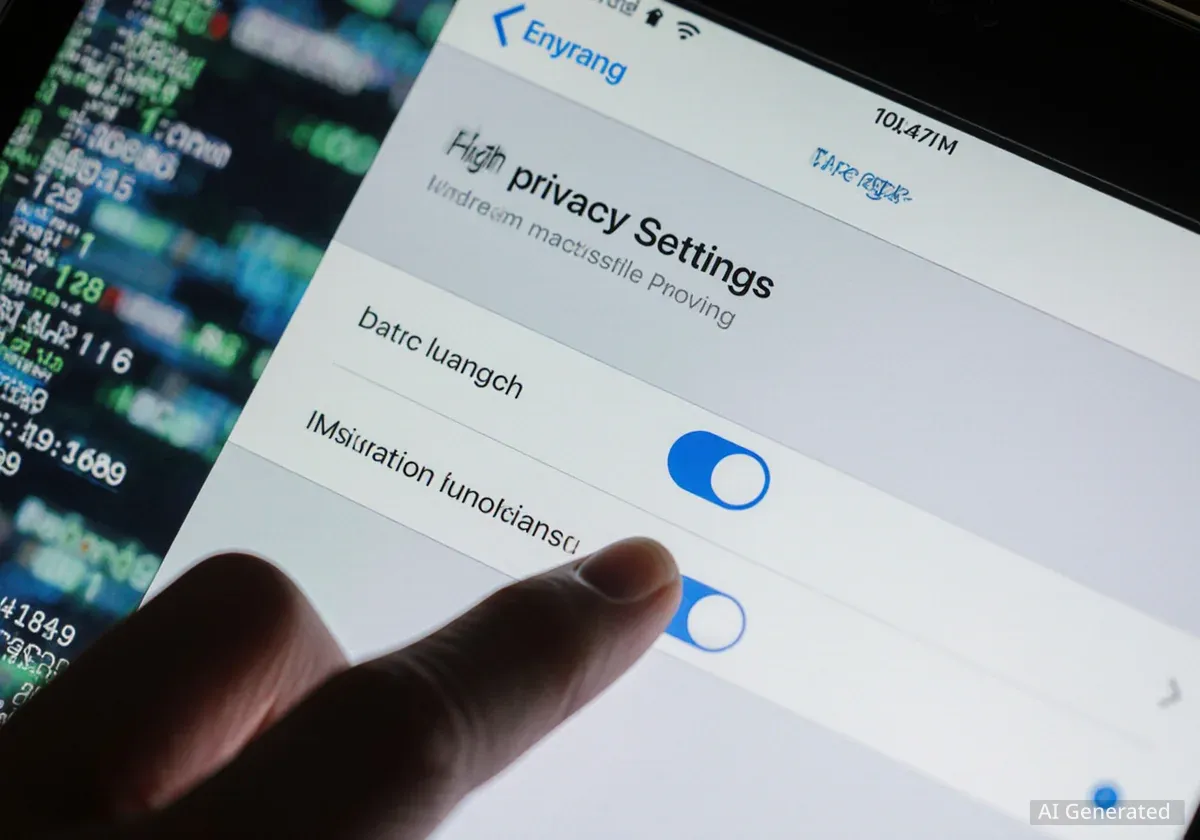A plan by a private real estate company to install a network of license plate-reading cameras in South Brookline has sparked a significant debate among residents and town officials. The controversy centers on whether the Brookline Police Department should be granted real-time access to the data collected by this private surveillance system, raising questions about privacy, corporate partnerships, and the limits of local government oversight.
Chestnut Hill Realty is moving forward with the installation of cameras from Flock Safety, a company whose technology and business practices have drawn scrutiny nationwide. While the town's Select Board cannot legally prevent the private installation, it is now faced with the contentious decision of approving a data-sharing agreement with the police.
Key Takeaways
- Chestnut Hill Realty is installing Flock Safety license plate readers in South Brookline.
- The company intends to share real-time data with the Brookline and Boston police departments.
- Brookline's Select Board is debating an agreement that would formalize police access to the data.
- The proposal has met with unanimous opposition from public commenters, citing privacy risks and Flock Safety's controversial history.
- Town officials acknowledge they lack the authority to stop a private company from installing the cameras.
A Private Initiative with Public Consequences
The initiative is being led by Chestnut Hill Realty, a major property owner in the area. Jennifer Murphy, the company's chief operating officer, stated the goal is to "help prevent crime in the community." Murphy confirmed that data would be shared exclusively with local law enforcement, specifically the Brookline and Boston police departments.
"This initiative reflects our ongoing commitment to community safety and collaboration with local officials, while maintaining strong privacy protections for all residents," Murphy said in a statement.
However, the plan has become a flashpoint for a broader conversation about surveillance. The American Civil Liberties Union (ACLU) and numerous local officials have raised alarms, complicating what Police Chief Jennifer Paster initially described as a "no-brainer" from a law enforcement perspective.
What Are Flock Cameras?
Flock Safety cameras are automated license plate readers (ALPRs) that capture images of vehicles and their license plates. The system can alert law enforcement in real-time if a vehicle associated with a crime, a stolen car report, or an Amber Alert passes by. The data is stored and can be searched by law enforcement agencies that are part of Flock's network.
The Police Department's Stance
Police Chief Jennifer Paster argued in favor of the data-sharing agreement during a recent Select Board meeting. She explained that real-time alerts could be instrumental in solving crimes and responding to emergencies.
According to the proposal, the police department would receive immediate notifications when a vehicle on its "hot list" is detected. This list could include cars linked to open warrants, stolen vehicle reports, or child abductions.
Paster cited recent mail thefts near Putterham Circle as an example of a crime where immediate access to such data could have significantly aided the police response. The department has also drafted an internal policy to govern its use of the camera data, aiming to address some of the privacy concerns.
A Divided Board and Vocal Public Opposition
The five-member Select Board appeared split on the issue. Some members argued that since the cameras are being installed regardless, it would be irresponsible for the police not to use the available data to enhance public safety.
"Chestnut Hill Realty's going to do this. They're going to put this system in," said board member Paul Warren, who urged support for the police chief's request.
Member John VanScoyoc echoed this sentiment, calling it "irresponsible" for the police to ignore the information. He did, however, stress the need for a strong policy to protect civil liberties.
Other members expressed deep reservations. Board Chair Bernard Greene described the technology as "invasive surveillance."
"We live in a scary time, and this is a scary technology that can be accessed by scary people," Greene stated during the meeting.
Public comment at the meeting was universally negative. More than a dozen residents and Town Meeting members spoke against the agreement, pointing to Flock Safety's track record and the potential for data misuse.
Flock Safety's Controversial Past
Opponents highlighted Flock Safety's previous direct cooperation with U.S. Immigration and Customs Enforcement (ICE). The company has also faced criticism in other municipalities, such as Evanston, Illinois, where it allegedly reinstalled cameras without permission. The nearby city of Cambridge recently ordered Flock to deactivate its cameras pending an investigation into the company's practices.
"The town of Brookline should not do business with this company," said Town Meeting member Amy Newell. "We should not be aiding and abetting the expansion of a nationwide surveillance network by what is obviously a bad actor."
Data Ownership and Legal Concerns
A key point of contention is the ownership and control of the data collected. Select Board member David Pearlman pointed to a line in the proposed memorandum of understanding (MOU) that he found troubling.
While Flock claims that its clients, like Chestnut Hill Realty, own the data, Pearlman noted the MOU states that Flock "retains all right, title and interest" to the data and can use it "for any purpose."
"The way the MOU language is articulated does give me a lot of pause," Pearlman said.
This concern was amplified by an ACLU of Massachusetts lawyer, Gideon Epstein, whose letter was quoted at the meeting. Epstein warned the agreement would "give Flock unlimited authority to use data collected from Brookline for any purpose whatever without oversight or restriction."
Massachusetts Senate Majority Leader Cindy Creem, who represents Brookline, has also weighed in, noting she has previously filed legislation to regulate license plate readers.
"As Brookline considers new AI-powered systems, it’s essential that we also prioritize protecting sensitive location data and ensuring strong safeguards for immigrant and other historically over-surveilled populations," Creem said in a statement.
The Path Forward Remains Unclear
The Select Board did not vote on the memorandum and plans to revisit the issue at a future meeting. Members expressed a desire for a representative from Chestnut Hill Realty to be present for the next discussion.
The core legal challenge remains that the town cannot stop the cameras from being installed on private property. Town Administrator Charles Carey suggested that Town Meeting, the town's legislative body, might have the power to enact a bylaw banning private companies from using such technology, though he cautioned it could face legal challenges.
As the debate continues, the fundamental question for Brookline is not whether the surveillance network will exist, but whether the town itself will become an active participant in it. Board Chair Greene concluded with a stark warning, referencing the Flock CEO's stated goal of eliminating all crime in the United States.
"Think about that. Where has that been accomplished? North Korea," he said. "Do we want to be North Korea?"





